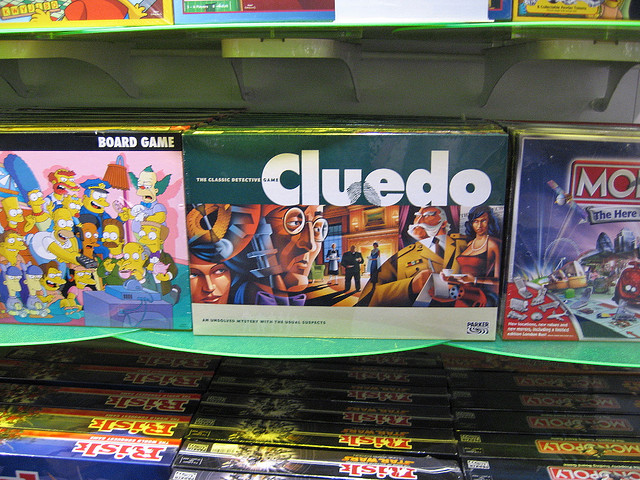(image by misocrazyvia Creative Commons Search)
NOW it feels like spring! Enjoy! A couple things…
_________________
FEATURED POST: “Ten Things the Years Have Taught Us in Ten Years.”
This week we read Jody Rosen’s wonderful post “Ten Things the Years Have Taught Us in Ten Years.” In it she talks about George Otte‘s presentation at last month’s forum on instructional technology sponsored by City College’s Center for Excellence in Teaching and Learning. At the forum, George shared “some wisdom he’s earned through working as the University Director of Academic Technology and the other positions he holds at CUNY.” Here are his ten points (as transcribed by Jody):
- Don’t wait until you’re ensured the necessary wherewithal. As Otte put it in other words, “If you build it, they will fund.”
- Put things in writing. As that is all I wrote down for this point, and it’s not clear what he was referring to specifically, I already wish I had followed that advice!
- Always focus on the why and not just the what. It’s important not to use the tools for the sake of the tools, but for the opportunities for learning, working, and sharing that the tools afford.
- A Corrollary: Be wary of trends for trends’ sake.
- A Caution: Don’t sit and wait for things to stabilize: they won’t.
- Principles before all other Ps (procedures, programs, even pilots).
- People matter more than technology.
- Ends matter more than means. For any project, there is a need to articulate goals and demonstrate usefulness.
- Expect change, because change is the expectation.
- Network, network, network. That is, make sure others know about what you’re doing, and also know what’s out there so you don’t reinvent the wheel.
It brings up an interesting point that applies to the OpenLab, but really to any platform like ours, including all those that will follow. An important goal for our project is to act as a model for future similar projects, and disseminating our successes and processes. And this brings us to George’s point number 1: Don’t wait until you’re ensured the necessary wherewithal. As we’ve worked on creating and now developing the OpenLab, we’ve been constantly surprised by what’s happened, what’s been necessary, what is needed. For example: we expected nothing like 6,000 members at this point in the process. But there are many many examples of things we might not have expected (which is, ironically, exactly what one should probably expect from a community-driven project like this!)
“Necessary wherewithal” here refers to funding, but it also strikes us that it could refer to almost anything one isn’t sure about. In large projects like ours, there is no end to the possible ramifications and surprises that might, if one let them, give one pause and maybe even stop one from the start. The brave folks that started the OpenLab (this writer not being one, he can say so with an almost complete lack of bias!) trusted that they had created a framework which would accomodate all these surprises, and they trusted that they could lean on an adept and intelligent community to help create (and continue creating) an ever better OpenLab.
_____________________
FEATURED EVENT: OPEN PEDAGOGY WORKSHOP
On Friday, April 5th, we invited all the Living Lab Fellows (and others) to a large meeting and workshop on Open Pedagogy. Much wildness ensued (just kidding), but it was tremendous fun. The highlight of the event was certainly an assignment generation exercise, led by Libby Clark and Maura Smale (though the whole team–especially Jody Rossen and Charlie Edwards–were instrumental in its development).
In the exercise, groups of participants were to create an assignment based on three cards, drawn at random: a Gen Ed Student Learning Object, an Open Pedagogy Practice, and a game. The games were all common games: Clue, Battleship, The Sims, etc. From there, the groups created an assignment in which they met the SLO, used the Open Pedagogy practice, and included an element of the game. Sounds daunting, but the participants launched in and, in just a few minutes, developed some amazing assignments.
There was a great deal of variety: some projects were semester-long assignments, others were quick, single-use assignments (a math problem worked out in twitter’s 140 characters, for example). The exercise and the resulting assignments will be valuable to anyone who teaches, and we’ll be sure to post them soon on the Open Lab. And thanks to everyone who participated!
That’s all for this week! Enjoy the weather!




